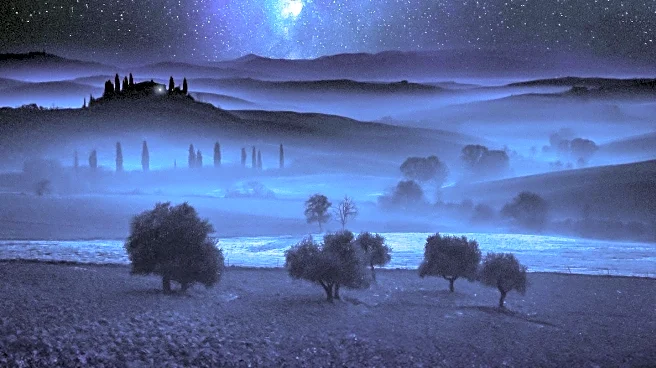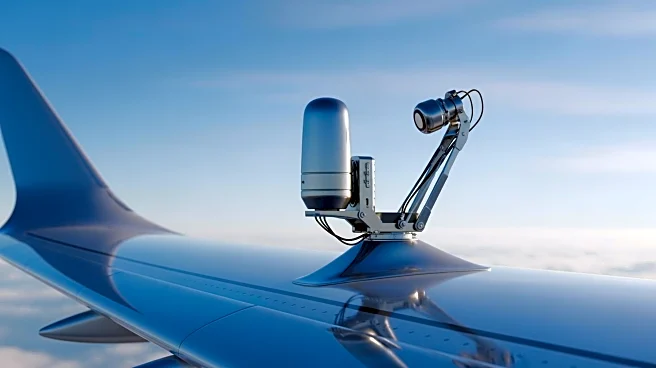What is the story about?
What's Happening?
The Perseid meteor shower, renowned for its bright meteors and colorful fireballs, peaked on August 12 and 13. Despite the peak coinciding with a bright moon, which reduced visible activity by 75%, the shower remains visible until August 23. Stargazers can still witness the event, particularly in rural areas with dark skies. Ohio residents are encouraged to visit dark sky parks like Geauga Observatory Park and Fry Family Park for optimal viewing. The best times to view the meteors are after midnight and before dawn, although experts suggest starting as early as 10 p.m. ET. The Perseid meteor shower originates from the Comet Swift-Tuttle, discovered in 1862, and is considered one of the most beautiful meteor showers of the year.
Why It's Important?
The Perseid meteor shower is a significant astronomical event that attracts stargazers and enthusiasts across the Northern Hemisphere. It provides an opportunity for people to connect with the natural world and appreciate celestial phenomena. The event also highlights the importance of preserving dark skies, as light pollution can significantly impact the visibility of such events. Dark sky parks play a crucial role in offering locations where people can experience the night sky without interference from artificial lights. This event underscores the need for awareness and action regarding light pollution and its effects on both astronomy and the environment.
What's Next?
As the Perseid meteor shower continues through August 23, stargazers are advised to find locations away from city lights to maximize their viewing experience. The weather forecast in Ohio suggests mostly clear skies, providing favorable conditions for observing the meteors. Stargazers should prepare for the event by dressing appropriately for the weather and allowing their eyes to adjust to the darkness. The continuation of the meteor shower offers a chance for educational outreach and public engagement in astronomy, encouraging people to learn more about celestial events and the importance of dark sky preservation.
Beyond the Headlines
The Perseid meteor shower serves as a reminder of the broader implications of light pollution and its impact on both human health and wildlife. Excessive artificial lighting can disrupt ecosystems and affect nocturnal animals. The event also highlights the cultural and scientific value of astronomy, fostering interest in space exploration and scientific inquiry. As people gather to watch the meteor shower, it provides an opportunity for community engagement and shared experiences, promoting a sense of wonder and curiosity about the universe.















